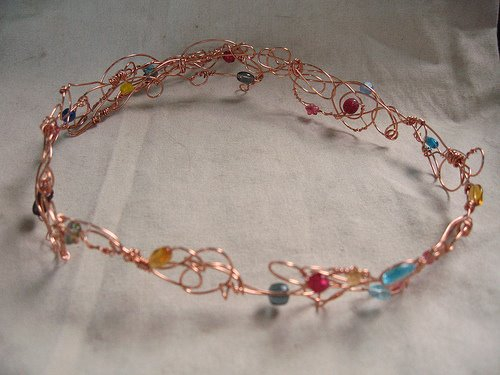Photo and Tiara credit to Amanda Downum!
The John W. Campbell Award for Best New Writer is the original “not a Hugo” award which comes packaged with all the actual Hugos. To be eligible for this, the author’s first professional writing has to have come out within the last two years, which makes it a bit of a grab-bag of individuals who, for whatever reason, have been able to generate buzz very quickly for their new writing careers. If 2018’s ballot is an indication of the “new face” of the genre, it’s a promisingly diverse one: five people of colour, multiple queer creators, and not a white dude in sight (although before anyone starts fussing over my raising that, let’s remember that Andy Weir won this award literally two years ago thanks to The Martian, so we are hardly watching the death of dude fic right now…)
In a departure from my other posts, I’m not going to use absolute rankings, because it’s one thing to categorise works as “meh” and “good” and “awesome” but not an appropriate thing to do with people’s names. Instead, you may assume that all of people below are awesome, and I’ll just let you know the order they’re going on in my ballot, because apparently I still have to put numbers to these wonderful humans.
6. Sarah Kuhn (What I read: Heroine Complex). Sarah Kuhn’s main work is the superheroic adventures of Evie Taneka and Aveda Jupiter, best friends turned superpowered ladies turned put-upon assistant and overrated diva, respectively. I have only read the first book in this series, which is now up to book 3, and while its an enjoyable story I didn’t “click” with some of the characters or the romantic element, so I haven’t explored any further. I completely understand why it’s such an important and exciting story for so many people, though, and I’ve no doubt later entries get even more accomplished.
5. Rebecca Roanhorse (What I read: “Welcome to your Authentic Indian Experience”). I’ve already reviewed Roanhorse’s Hugo nominated story, which is second on my ballot for that award, and I’m really looking forward to diving into her debut novel which is already waiting on my Kindle for me to finally finish with Hugo reading and ARC commitments. Unfortunately, this is such a strong ballot that I can’t rank Roanhorse any higher, but even on the strength of that one story she more than deserves her place here.
4. Katherine Arden (What I read:The Bear and the Nightingale). Arden’s novels, set in rural 19th century Russia, follow a headstrong young woman named Vasya whose connection to the spirits around her, and unwillingness to accept the very limited roles available to women in her society, bring her into direct conflict with her community and with the growing influence of the Christian church. I’ve read both, although only one is technically eligible for consideration here, and found them both to be interesting and highly readable, sitting in that sweet spot between YA and adult fiction that often delivers the most delicious of page turners. Again, the positioning here is more on the strength and depth of what’s ahead than any weakness in Arden’s own work, and I’m not sorry to have nominated her in this category.
3. Rivers Solomon (What I read: An Unkindness of Ghosts). Solomon’s first novel is a brutal story where the racial and power dynamics of the American South have been reproduced on a generation ship, and the residents are now struggling with a vessel that’s starting to come apart. Told through the perspective of Aster, a non-neurotypical and intersex protagonist, this is not a narrative that pulls its punches, and it was hard to read in multiple places, but the voice and tone it hits are very accomplished and I’m glad it exists. Bonus points for being great in audiobook, too.
2. Jeanette Ng (What I read: Under the Pendulum Sun). This is a book that I would have loved ten years ago, and even the me of now can’t deny its quality. Going all-in on a strong gothic style, it tells the story of a woman who has followed her missionary brother into the land of Fairy, a grim realm. The writing is pitch perfect, capturing the period sensibilities it is aiming for . Unfortunately, I can’t say I liked the story, particularly its more taboo-inducing twists, but its definitely a case where I can overlook that personal discomfort to focus on the technical strengths of the work, which are immensely impressive.
1. Vina Jie-Min Prasad (What I read: “Fandom for Robots” and “A Series of Steaks”). It’s surprising to me, given my strong preference for novels over short fiction, that it’s a short fiction writer I want to put at the top of this list. but, on the strength of just two stories, it’s a position I think Prasad completely deserves. A Series of Steaks and particularly Fandom for Robots pack so much emotional resonance into what are, on the surface, fairly straightforward stories. I’m really looking forward to her continued presence on the ballot forever.
What I think will win: Can we just buy tiaras and drinks of choice for all the amazing people in this group?
What I nominated:
I did basically no eligibility checking before going for this, so I may well have nominated people who didn’t qualify. Again, I’m disappointed Michele Tracy Berger hasn’t had any awards buzz for Reenu-You, but I hope we’ll be seeing more from her regardless.
- Katherine Arden (for The Bear and the Nightingale)
- Lara Elena Donnelly (for Amberlough)
- Michele Tracy Berger (for Reenu-You)
- K.B. Wagers (for the Indranan War trilogy)
Previous Roundups:
